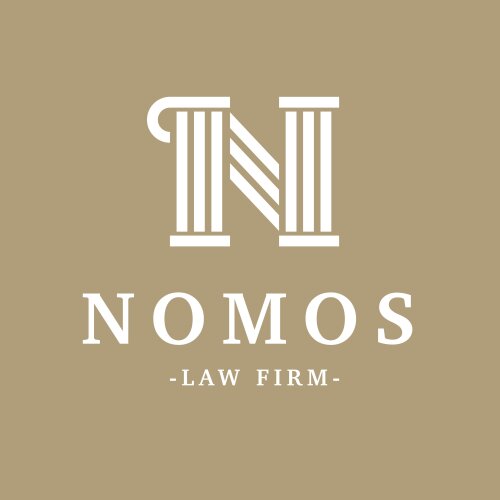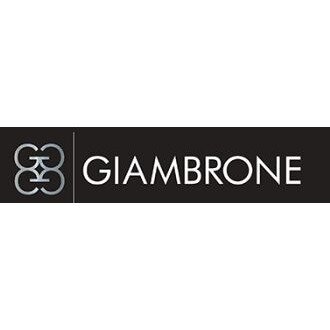Best Nonprofit & Charitable Organizations Lawyers in Italy
Share your needs with us, get contacted by law firms.
Free. Takes 2 min.
Or refine your search by selecting a city:
List of the best lawyers in Italy
About Nonprofit & Charitable Organizations Law in Italy
Nonprofit and charitable organizations in Italy operate under a distinct legal framework, often influenced by both national and regional regulations. These entities are established to pursue social goals without the aim of profit distribution. Common forms include associations, foundations, social cooperatives, and social enterprises. Each type of organization has its specific legal requirements, governance structures, and operational freedoms and constraints. Understanding these regulations is crucial for effective and compliant operation within the sector.
Why You May Need a Lawyer
Engaging with a lawyer specializing in nonprofit and charitable organizations can be beneficial for a variety of reasons. Setting up a nonprofit requires navigating complex legal procedures, such as drafting statutes and registering with appropriate bodies. Ongoing operational issues can involve matters of tax compliance, governance, employment law, and liability management. Moreover, legal guidance is essential when handling mergers, dissolutions, or restructuring to ensure compliance with the law and protection of assets and interests of stakeholders.
Local Laws Overview
Italy’s legal framework for nonprofit organizations is mainly governed by the Civil Code and the 'Codice del Terzo Settore' (Third Sector Code), which came into effect in 2017. Key aspects include:
- Legal Forms: Nonprofits can be set up as associations, foundations, or social cooperatives, each with its specific rules.
- Registration: Most types of nonprofits must register with the Regional Registry of Nonprofit Organizations to gain legal recognition.
- Fiscal Benefits: Certain tax benefits are available, but organizations must comply with periodic reporting requirements to maintain eligibility.
- Governance: Specific governance structures, such as boards and management bodies, must be established according to the organization’s form.
- Transparency and Reporting: Nonprofits are generally required to maintain transparent financial records and report their activities to relevant bodies.
Frequently Asked Questions
What is required to establish a nonprofit organization in Italy?
To establish a nonprofit, you'll need to choose the organizational form, draft a statute specifying your mission and governance, and register with the appropriate regional or national registry.
Do nonprofit organizations in Italy pay taxes?
Nonprofits benefit from certain tax exemptions, but they must comply with specific legal requirements and are subject to regular audits to maintain their status.
Can a nonprofit organization engage in commercial activities?
Yes, but the profits must be reinvested into the organization's primary objectives and not distributed as dividends.
What are the legal responsibilities of board members in a nonprofit?
Board members are responsible for ensuring legal compliance, fiduciary management, and effective governance of the organization.
How often must nonprofit organizations report to the authorities?
Nonprofits must provide annual financial statements and activity reports to relevant authorities, detailing their use of funds and operational outcomes.
What is a social enterprise in Italy?
A social enterprise is a type of business that pursues social or community goals. It must comply with specific requirements under the Third Sector Code, including reinvesting profits.
Is it possible to convert a for-profit entity into a nonprofit in Italy?
Yes, but it involves a complex legal process that requires reorganization and compliance with nonprofit legal statutes and guidelines.
Are there specific employment laws applicable to nonprofits in Italy?
While general employment laws apply, nonprofits may have specific obligations related to volunteers and employment contracts tailored to charitable work.
How are donations to nonprofits regulated in Italy?
Donations are often tax-deductible for the donor, and nonprofits must provide proper documentation for any received contributions.
Can foreign entities operate a nonprofit in Italy?
Foreign entities must adhere to Italian regulations and may need partnership with local organizations or additional registrations to operate legally.
Additional Resources
For more information and assistance, you may consider reaching out to:
- Agenzia per il Terzo Settore: The official agency for the regulation and supervision of third-sector organizations.
- Unioncamere: Provides information on the registration and operation of legal entities in Italy, including nonprofit organizations.
- Local Chambers of Commerce: Often offer specific guidance and support for setting up and managing nonprofit organizations.
Next Steps
If you are considering starting or are already involved with a nonprofit in Italy, and find yourself needing legal assistance, follow these steps:
- Identify Specific Needs: Determine the specific legal issues or questions you have. This may involve forming a new nonprofit, compliance inquiries, or dispute resolution.
- Consult a Specialist: Seek a legal professional with expertise in nonprofit law. Initial consultations can provide clarity on complexities and strategies.
- Gather Documentation: Assemble all relevant documents, such as statutes, financial records, and correspondence, to present a clear case to your lawyer.
- Explore Alternative Resources: Consider joining networks or forums of nonprofit organizations to exchange experiences and recommendations for legal services.
- Regularly Update Legal Knowledge: Laws and regulations can change, so maintaining ongoing legal counsel can help your organization stay compliant and informed.
Lawzana helps you find the best lawyers and law firms in Italy through a curated and pre-screened list of qualified legal professionals. Our platform offers rankings and detailed profiles of attorneys and law firms, allowing you to compare based on practice areas, including Nonprofit & Charitable Organizations, experience, and client feedback.
Each profile includes a description of the firm's areas of practice, client reviews, team members and partners, year of establishment, spoken languages, office locations, contact information, social media presence, and any published articles or resources. Most firms on our platform speak English and are experienced in both local and international legal matters.
Get a quote from top-rated law firms in Italy — quickly, securely, and without unnecessary hassle.
Disclaimer:
The information provided on this page is for general informational purposes only and does not constitute legal advice. While we strive to ensure the accuracy and relevance of the content, legal information may change over time, and interpretations of the law can vary. You should always consult with a qualified legal professional for advice specific to your situation.
We disclaim all liability for actions taken or not taken based on the content of this page. If you believe any information is incorrect or outdated, please contact us, and we will review and update it where appropriate.
Browse nonprofit & charitable organizations law firms by city in Italy
Refine your search by selecting a city.

















